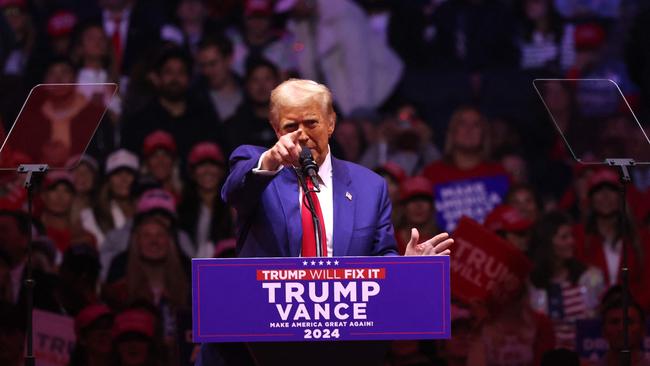
Americans have turned against the Democrats as higher prices clobbered household finances and shoved consumer sentiment down to near all-time lows – even as the US economy’s broad measures of growth, income, employment and investment swelled.
Long-term governments in Britain and New Zealand that struggled to contain price growth were summarily turfed out this year, while Narendra Modi’s Bharatiya Janata Party lost its parliamentary majority as the financial squeeze on Indian families continued.
Last month, Japan’s Liberal Democratic Party, which has ruled almost uninterrupted since 1955, and its coalition partner also lost their majority, as voters struggling with higher household bills and stagnant incomes took their anger out on a government plagued by financial scandals.
The electoral omens are perilous for Anthony Albanese, as inflation remains too high and the Reserve Bank of Australia is warning the return to normal will be gradual.
And so the interest-rate pain continues.
Ten days ago, at his closing pep rally at New York’s Madison Square Garden, Donald Trump’s pitch to voters was elemental: “Are you better off now than you were four years ago?”
Under Joe Biden, who assumed office in January 2021, the US consumer price index rose by over 20 per cent.
For the first half of the Democrat’s presidential term, price growth comfortably outpaced the rise in wages.
But in early 2023, the lines crossed over and pay growth leapt above consumer inflation and stayed there.
A tracker from the Federal Reserve Bank of Atlanta shows median hourly wages rose by 4.7 per cent in the year to September, while consumer prices increased by 2.4 per cent over the period.
But Americans remained gloomy about their finances and Trump’s root question has clearly resonated with voters.
How will such issues play out in Australia?
In testimony to a Senate committee on Wednesday, Treasury Secretary Steven Kennedy explained that in its latest economic outlook, the International Monetary Fund expects the cumulative increase in prices between 2019 and 2025 in Australia to be similar to that of the US and lower than that of Britain and New Zealand.
Since the start of the pandemic, consumer prices here have increased by 19 per cent, and by 10 per cent since Labor came to power in May 2022.
Wages, as measured by hourly rates of pay (excluding bonuses) have increased by 13 per cent since March 2020 and 8 per cent under Labor.
The story is slightly better for minimum-wage workers, who have been awarded a 15 per cent (cumulative) pay rise by the Fair Work Commission in its past three decisions.
Still, it’s no wonder Australians are feeling the pinch and telling pollsters the cost of living is their top issue for federal government action – no other pressure point comes close.
According to JWS Research, the proportion of voters saying the economy is on the wrong track (rather than the right track) is two to one.
New figures on Wednesday from the Australian Bureau of Statistics show that the living cost index for working families – a measure that includes mortgage costs, which the CPI basket does not – rose by 4.7 per cent in the year to September.
While annual headline inflation has fallen from a peak of 7.8 per cent two years ago to 2.8 per cent, nudged down by temporary government help with energy bills and rent relief, underlying inflation is 3.5 per cent.
According to new RBA analysis, on a six-month annualised measure, our core inflation was the second highest among major advanced economies. Team GB takes the dubious honour on the inflation podium. Australia’s underlying inflation is around 1 percentage point higher than in Canada, NZ and the US, peer nations that pushed rates higher, and recorded higher jobless rates as well.
But they are all now well into a phase of normalising interest rates, a policy move that can’t come fast enough for the incumbent Australian Labor Party, which is ailing in the polls.







High inflation battered all nations in the post-pandemic unfurling, but in the great year of elections, the world’s voters are smashing incumbents.